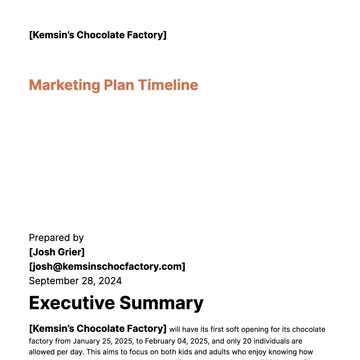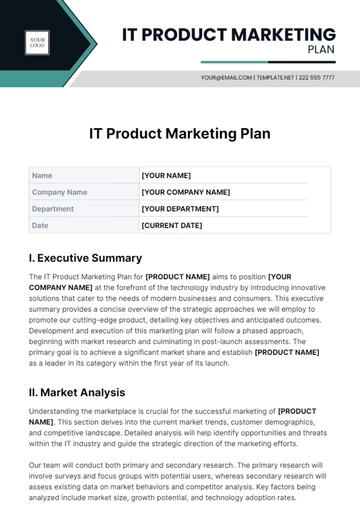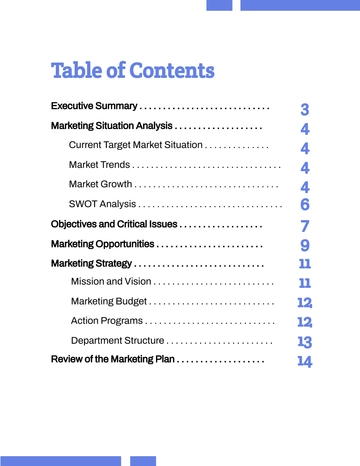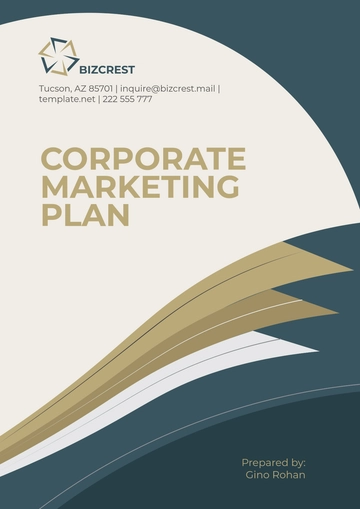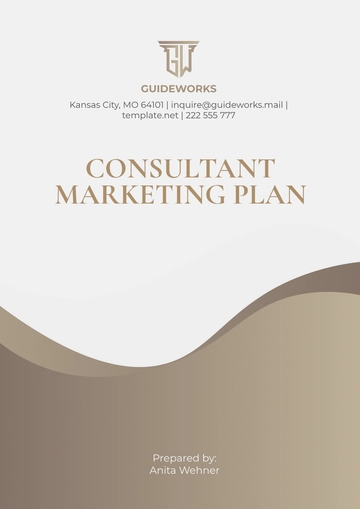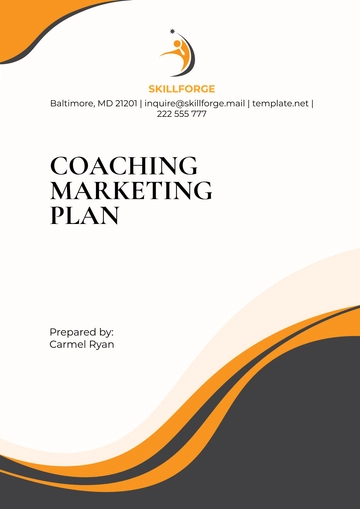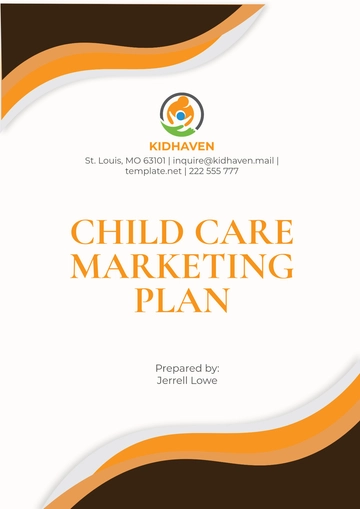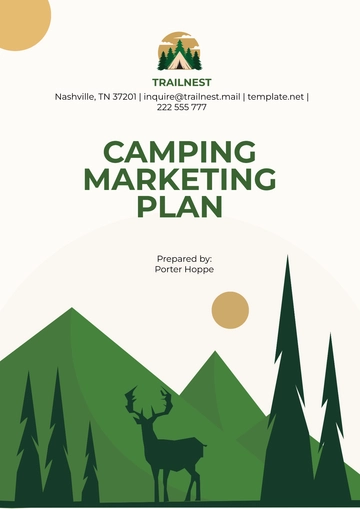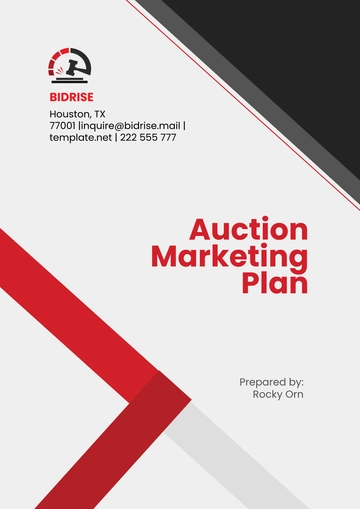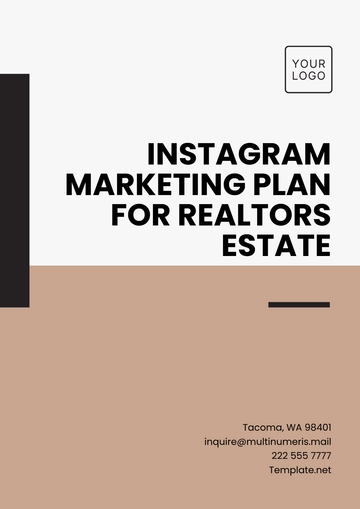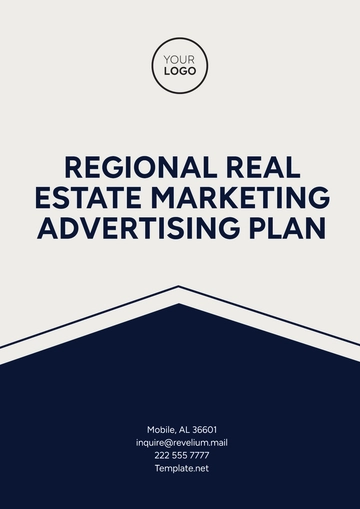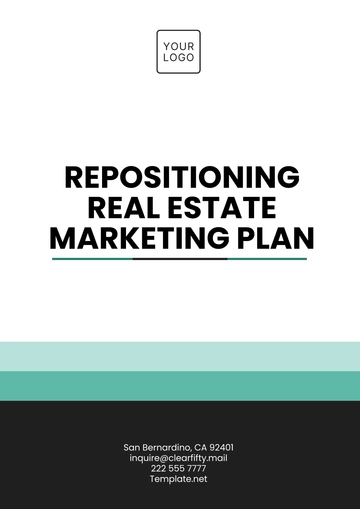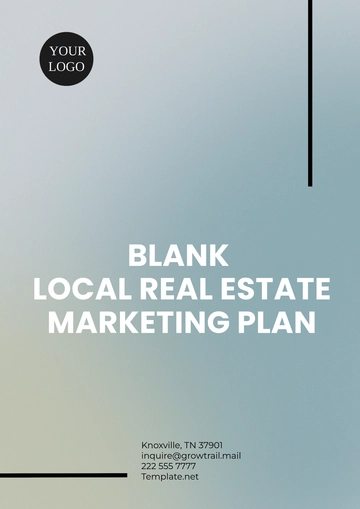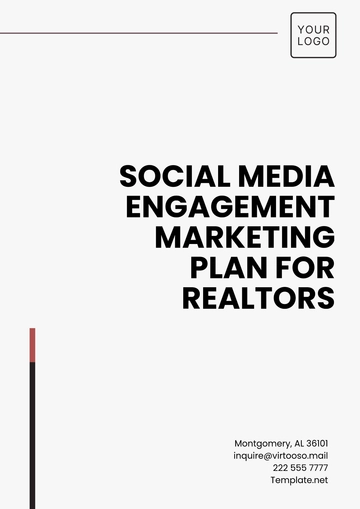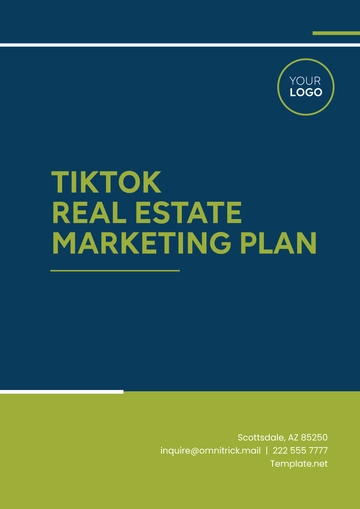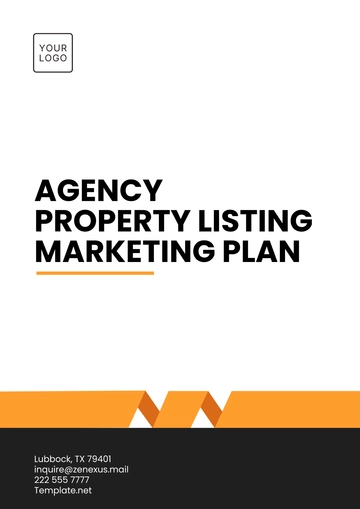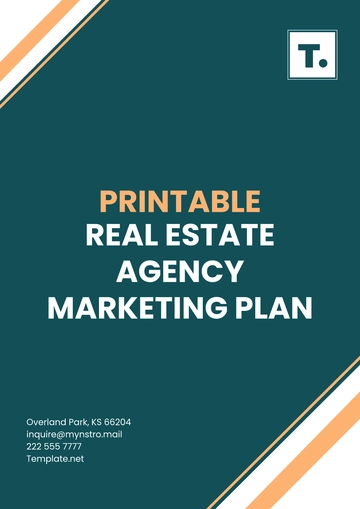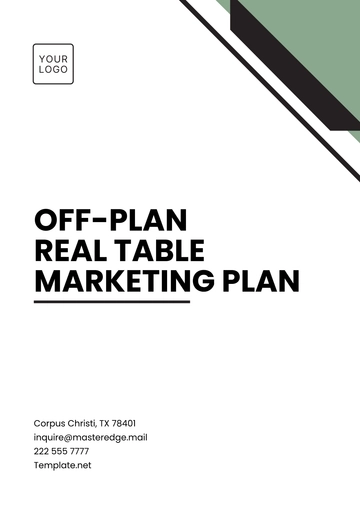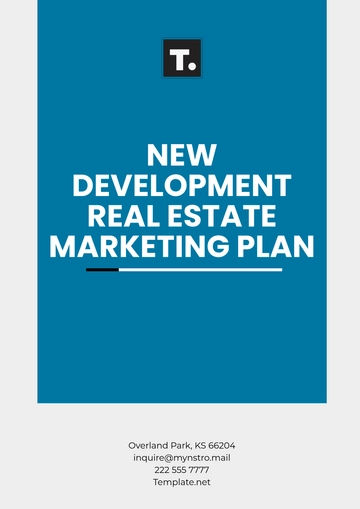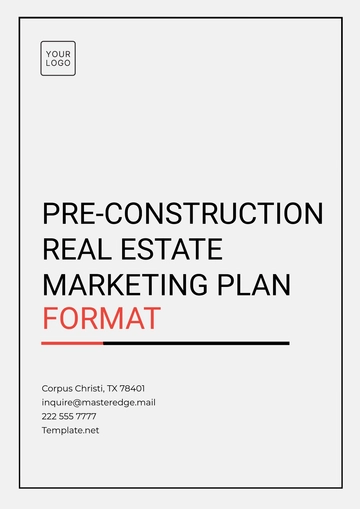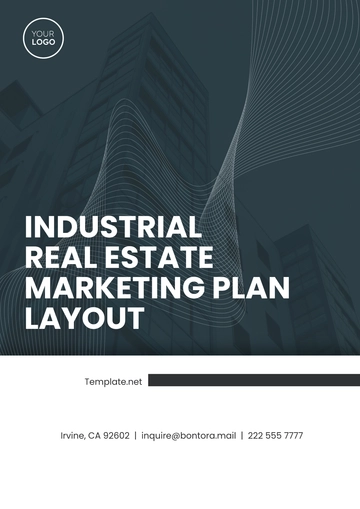Free Industrial Real Estate Marketing Plan Layout
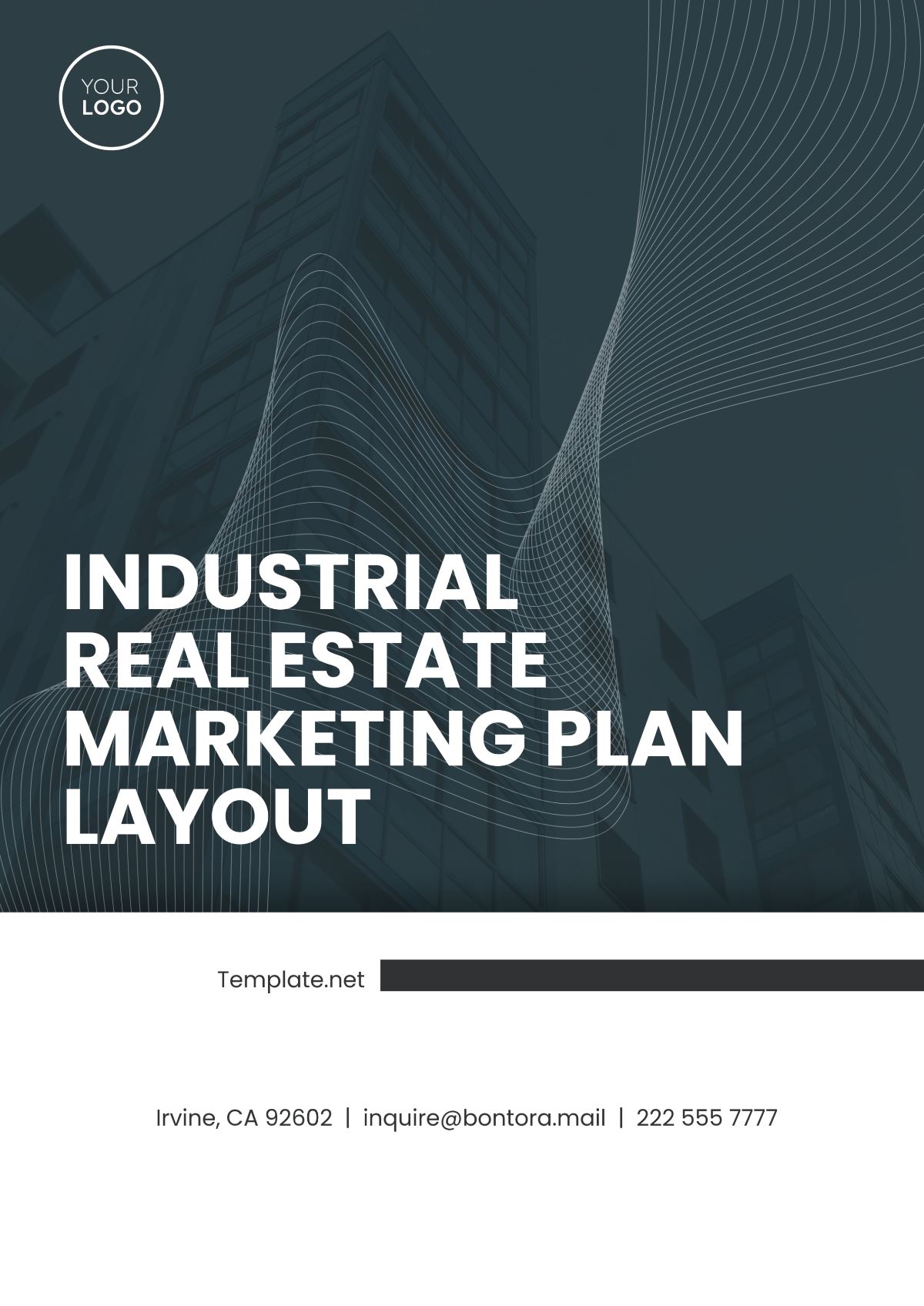
Prepared by:
[YOUR NAME]
[YOUR COMPANY NAME]
1. Executive Summary
Provide an overview of the marketing plan, including its purpose, goals, and expected outcomes.
Summarize key strategies to attract clients and maintain a competitive edge in the industrial real estate market.
2. Market Analysis
2.1 Industry Overview
Analyze the current trends and developments in industrial real estate.
Highlight factors such as demand for warehouses, manufacturing facilities, or distribution centers.
2.2 Target Market
Define the primary and secondary audience (e.g., logistics companies, manufacturers, retailers).
Discuss their needs, preferences, and decision-making factors.
2.3 Competitive Analysis
Identify key competitors and their strengths, weaknesses, and strategies.
Assess market positioning to highlight opportunities and threats.
3. Marketing Goals and Objectives
Set clear, measurable goals such as:
Increasing client inquiries by a specific percentage.
Leasing or selling a set number of properties within a timeframe.
Enhancing brand recognition in targeted industrial sectors.
4. Marketing Strategies
4.1 Brand Positioning
Establish the company as a leader in industrial real estate solutions.
Highlight key differentiators such as location expertise, client service, or sustainability initiatives.
4.2 Digital Marketing
Website Optimization: Ensure listings are detailed, visually appealing, and searchable.
SEO: Improve rankings for industrial real estate keywords.
Content Marketing: Publish blogs, case studies, and whitepapers relevant to the industry.
Social Media Campaigns: Target platforms like LinkedIn for B2B connections.
4.3 Traditional Marketing
Use direct mail campaigns to reach industrial business leaders.
Leverage trade publications and industrial real estate directories.
Host or participate in industry events, trade shows, and networking events.
4.4 Client Engagement
Develop personalized marketing campaigns for key prospects.
Offer incentives for long-term leases or referrals.
5. Property Listings and Marketing Materials
Ensure all listings have high-quality images, virtual tours, and detailed property specifications.
Create brochures, flyers, and digital media showcasing property features and benefits.
6. Marketing Budget
Allocate budget for digital advertising, print materials, events, and promotions.
Provide a breakdown of estimated costs for each marketing activity.
7. Implementation Timeline
Define a timeline for marketing initiatives, organized by quarter or month.
Assign responsibilities to team members for each phase.
8. Performance Metrics and Evaluation
Outline metrics to track success, such as:
Website traffic and inquiries.
Conversion rates for leads.
Engagement on social media and email campaigns.
Schedule regular evaluations to refine strategies.
9. Contingency Plan
Prepare backup strategies to address market changes or underperforming campaigns.
Include adaptive measures to stay competitive in a fluctuating market.
10. Conclusion
Reaffirm the plan’s focus on achieving measurable results.
Emphasize the importance of continual improvement and responsiveness to market trends.
- 100% Customizable, free editor
- Access 1 Million+ Templates, photo’s & graphics
- Download or share as a template
- Click and replace photos, graphics, text, backgrounds
- Resize, crop, AI write & more
- Access advanced editor
The Industrial Real Estate Marketing Plan Layout Template from Template.net is an editable and customizable solution for marketing industrial properties. Easily modify the template to align with your unique marketing goals using our Ai Editor Tool. This professional layout helps you create a tailored, effective strategy to attract potential buyers or tenants in the industrial sector.

